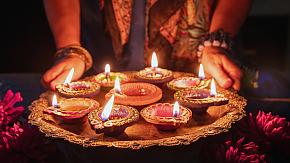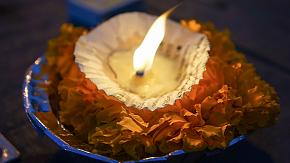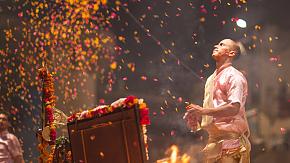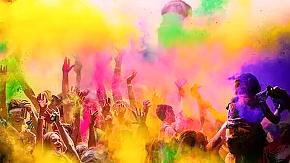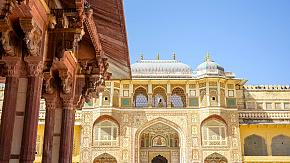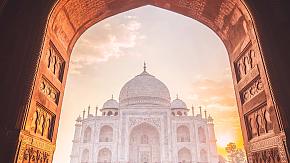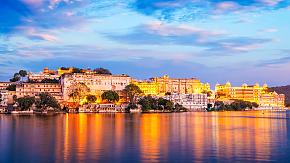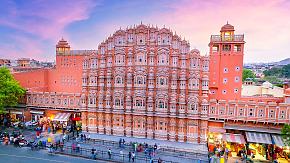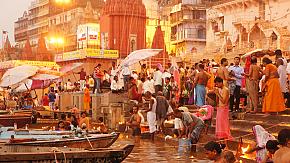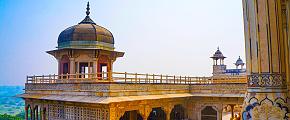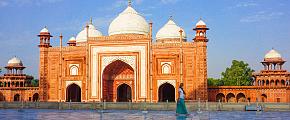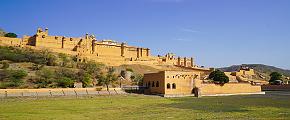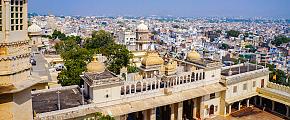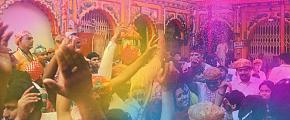Diwali in India 2025 - Festival of Light Travel Guide
Diwali (or Deepavali), also known as the Festival of Light, is one of India's most highly regarded festivals. It is a Hindu feast with lines of lamps, which symbolize the victory of light over darkness, making your autumn India tour dotted with delicate rangoli decorations, lively festive atmospheres, and grand celebrations. If you want to experience this holy festival and find out how to celebrate Diwali in India, here is what you need to know.
When Is Diwali in 2025
Diwali in India usually lasts for 5-6 days. In 2025, the main celebration is scheduled for October 20th, marking the most important day of this festival across the country. The celebrations begin on October 18th with Dhanteras, and each subsequent day holds a different meaning.
Typically, it takes place between September and November every year, depending on the Hindu lunar calendar. The 15th day of the Hindu calendar month of Kartik, also known as the day of Amavasya, marks the beginning of Diwali, the Festival of Light.
| Day | Festival & Meanings | Date in 2025 |
| Day 1 | Dhanteras - Wealth & Prosperity | October 18th (Saturday) |
| Day 2 | Narak Chaturdashi (Chhoti Diwali) - Victory & Hope | October 19th (Sunday) |
| Day 3 | Diwali (Laxmi Pujan) - Dawn & Rebirth | October 20th (Monday) |
| Day 4 | Govardhan Puja, Annakut - Nature & Eco-Conservation | October 21st (Tuesday) |
| Day 5 | Bhai Dooj, yama Dwitiya - Love & Protection | October 22nd (Wednesday) |
What Is Diwali & Why Is It Celebrated
The word "Diwali" comes from the ancient Sanskrit word "Dipavali." It's made up of two parts: "Dipa," meaning clay lamps, and "Avali," meaning a row. Together, they describe a row of lights, symbolizing the victory of light over darkness and good over evil. According to historical times, it is most likely related to the historical harvest festival, which the ancient Indians celebrated. There are several different stories about the origin of Diwali in India.
Some believe that the Festival of Light is associated with one of the incarnations of Lord Vishnu, King Rama. Rama bravely defeated and killed the evil king Ravana to save his wife, Sita. When they returned to the capital, people lit numerous lights to celebrate their safe return and welcomed them home. This is how the lighting of lights became an essential way for Hindus to celebrate Diwali.
Others want to worship Lakshmi, the Indian goddess of wealth. It is said that Lakshmi comes to the world on this day, and whichever house she sees there will receive a fortune. Therefore, people light up their homes with lights and want Lakshmi's favor.
Today, Diwali in India is not only a religious festival but also a grand celebration of family reunions, gift-giving, and sharing joy. If you come to India during this period, you will see the city streets brightly lit and homes beautifully decorated, with a festive vibe everywhere.
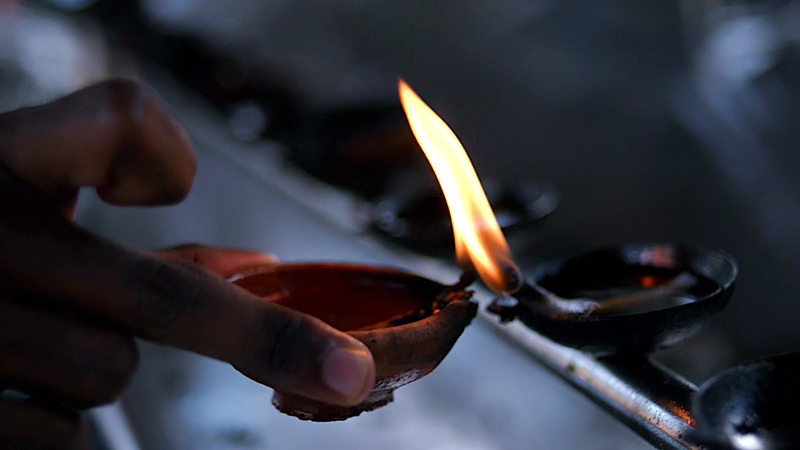 Clay Lamp of Diwali
Clay Lamp of Diwali
Who Typically Celebrates Diwali in India
Many religions in India celebrate the Festival of Light for different historical reasons and ways. But they share the same themes of justice, peace, and happiness. It is a beautiful coalescence of cultures, and you can see different religions and regions celebrating this day in the same festive atmosphere.
For Hindus, Diwali celebrates the victory of good over evil and invokes Goddess Lakshmi to bring them good luck.
For Jains, this festival honors the founder Mahavira, whose body died but whose soul lives on. It also involves the lighting of lamps and prayers to Lakshmi.
For Sikhs, this holiday celebrates the release of Sikhs' spiritual leader, Harbinder, from captivity by Jatihan, the emperor of the Mughal Empire of India. Sikhs have a tradition of bathing in holy water at the Amritsar shrine during the festival.
For some Buddhists, it is the celebration of commemorating Ashoka's decision to practice Buddhism and maintain peace.
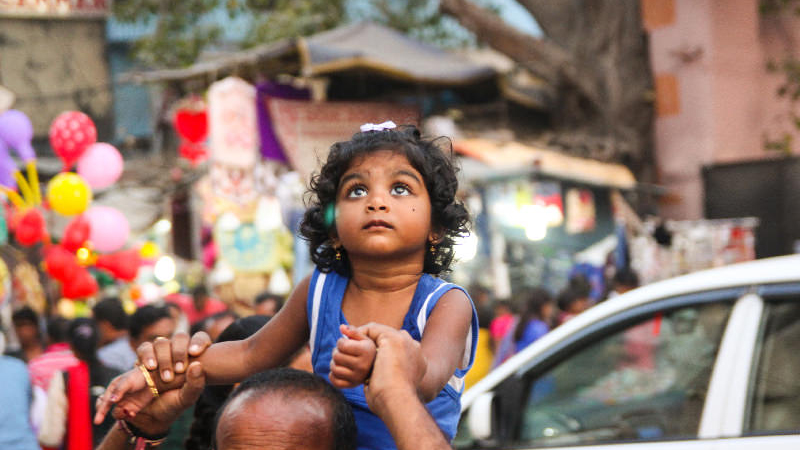 Everybody Can Enjoy Diwali
Everybody Can Enjoy Diwali
How Diwali in India Is Celebrated
The Lights Festival activities typically include cleaning, shopping for festive items, preparing food gifts, lighting, and performing sacrificial rituals. During this period, you can enjoy illuminations and fireworks, get special henna temporary tattoos, explore local bazaars, and taste festive snacks. You'll also have the chance to see celebration performances in the streets.
Clean the House
People clean on the first day of Diwali because the house is considered clean to attract the goddess Lakshmi. Only if the house looks clean will the goddess Lakshmi like their home for a stopover and give them blessings for good fortune and wealth.
Make Rangoli Decoration
Rangoli is a decorative folk art from India created during Diwali celebrations in front of house entrances, inside houses, or on the ground in courtyards. The main purpose is to welcome Goddess Lakshmi (Goddess of wealth) into homes, ward off evil eyes, and bring good luck.
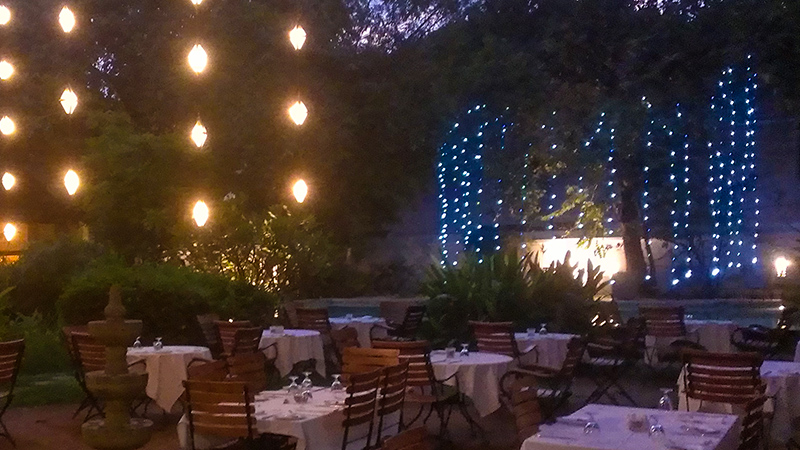 House Decoration With Lights in Diwali
House Decoration With Lights in Diwali
Go Festival Shopping
Diwali in India is an important festival in India. Before the festival begins, people will buy things needed for the festival. From new clothes to celebrating with a new look, to gifts for relatives and friends. Buying gold, silver, and jewelry at this time is also a popular custom.
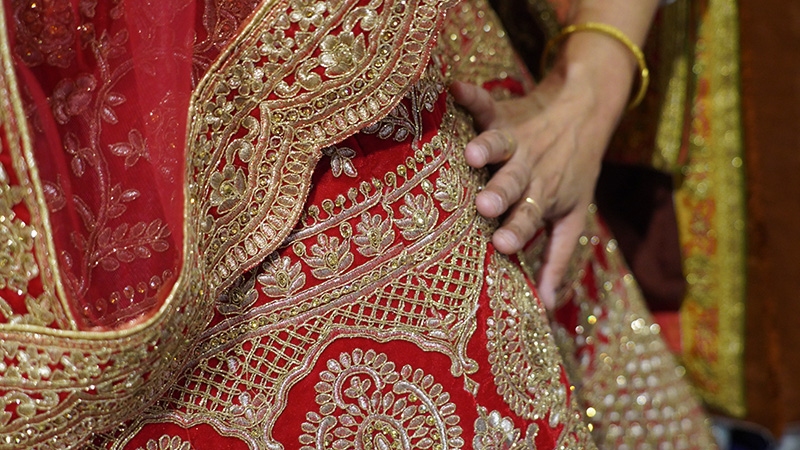 Beautiful Saree
Beautiful Saree
Exchange Gifts & Sweets
Diwali requires a variety of Indian delicacies and sweets, which can be served as snacks for guests. It is traditional to exchange gifts during the lights festival. People give gifts and exchange feelings with relatives and friends during this time. The gift of sweets is indispensable during the Festival of Light, including snacks such as sweets, gold coins, idols, costumes, and other gifts with Indian characteristics.
Partake in Ceremonies
Setting off fireworks and holding the "Lakshmi puja" ceremony are also important activities of the Festival of Light, which are meant to drive away evil and pray for the goddess's protection. Both ceremonies are usually held on the third day of Diwali. During the Lakshmi puja ceremony, people recite the Puja in their mouths and offer flowers and tributes to the goddess, and conclude by singing Aarti, a song celebrating the grace and power of the gods.
Where to Celebrate Diwali in India
Delhi
To experience the atmosphere of the Festival of Light and feel the real Indian culture, visiting Delhi is an ideal choice. With bustling Mela bazaars, carnivals, fireworks displays, a series of theatrical productions, concerts, and dances, all will draw you into a vibrant vibe and atmosphere. Besides, you can experience the Diwali activities and prayer rituals up close by, meet real Indian families, and taste the special food on offer during the lights festival.
Varanasi
The famous historical city, Varanasi, is a Hindu holy place. When the light festival arrives, the beauty here may be much more strikes you than usual. Enjoy a boat trip on the Ganges at sunset, seeing people chant reverently with a view to divine favor along the riverbank. Have a blast in the crowded bazaars, where you can buy everything from local handicrafts to delicious sweets. The celebrations are capped off with an impressive fireworks show.
If you remain for a little longer, you can spend the unique festival of Varanasi, which takes place 15 days after Diwali. Dev Deepavali, also known as the "Diwali of the Gods". The steps of all the ghats on the riverfront of the Ganges River are lit with more than a million clay lamps in honor of the Ganga River and its presiding goddess.
Jaipur
Jaipur is one of the best places to enjoy the Diwali festive atmosphere. The houses and bazaars of Jaipur are decorated with lanterns and beautiful decorations, which are very ornamental. You can enjoy the beauty of the whole city during the light festival from Jaipur's famous scenic spot, Nahargarh Fort. Capture the reflections of the glittering Jal Mahal and pyrotechnics in the stunning Man Sagar Lake. Moreover, the city bazaars are always bustling with musicians singing traditional tunes and a wide variety of handcrafted lamps. Here, you can also feast your taste buds on some authentic Rajasthani cuisine.
Amritsar
Amritsar is a Sikh city that also celebrates Diwali devoutly. The Golden Temple in Amritsar is a famous attraction in the city. The sight of the Golden Temple surrounded by lanterns during the Festival of Light is spectacular and very attractive. During Diwali, pilgrims will hold a big celebration at night. Of course, you can enjoy the beautiful fireworks display in Amritsar or join the pilgrims in meditation and prayer.
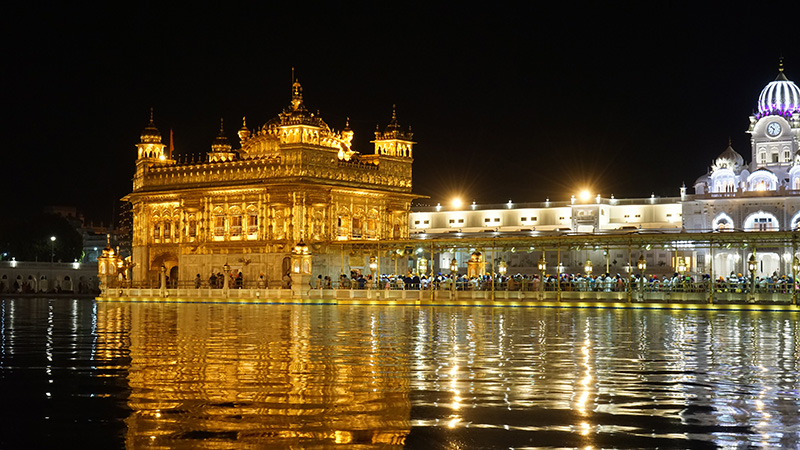 Amritsar Golden Temple
Amritsar Golden Temple
India Diwali Travel Tips
Book in Advance
If you are planning to travel to India during the Festival of Light, please make reservations several months in advance, as many tourists from worldwide will be rushing into India.
Set Lights & Fireworks Carefully
When setting off firecrackers, be sure to pay attention to personal safety and follow the instructions carefully. And note if fireworks are allowed in the areas. Don't place lights in dangerous environments to avoid injury.
Ask for Permission Before Photoing
If you want to take pictures of the praying people or some religious ceremonies held in temples, you should always ask for permission first.
Festival You May Also Like
Holi
Date: Generally occurs on the last full moon of the lunar month of Phalguna. In 2026, it falls on March 4th.
- To celebrate the triumph of good over evil and mark the arrival of spring.
- During the festival, people light bonfires, perform religious rituals, offer prayers, and throw gulal (colorful powders and water) on one another.
Recommended Tour Itinerary
Ganesh Chaturthi
Date: Occurs on the fourth day after the new moon in the month of Bhadrapada on the Hindu calendar. In 2025, it falls on August 27th and lasts for 10 days.
- To commemorate the birth of Lord Ganesha, the god of wisdom and good fortune, represents the clearing of all obstacles and new beginnings.
- People install idols of Lord Ganesha, pray, puja with the chanting of shlokas; on the eleventh day, a major event called Visarjan occurs, during which the idols are submerged in water.
Pongal
Date: The activities are held for 3 to 4 continuous days, starting from the last day of the Tamil calendar month of Margazhi, and include Bhogi (Jan 13, 2026), Thai Pongal (Jan 14, 2026), Mattu Pongal (Jan 15, 2026), and Kaanum Pongal (Jan 16, 2026).
- To thank the Sun God for good harvests.
- Clean old belongings, cook Pongal (a pot of rice with milk), bathe and decorate cows, enjoy family feasts, and younger generations seek blessings from elders.
Dussehra (Vijayadashami)
Date: Typically falls between September 27th and October 26th. In 2025, it occurs on October 2nd.
- To celebrate the triumph of justice and goodness over evil, commemorate Rama's defeat of the demon king Ravana.
- Watch Ramlila drama performances, burn effigies of Ravana, and explore local Dussehra fairs.
Onam
Date: Typically occurs between August and September and lasts for 10 days. In 2025, it falls from August 26th to September 5th.
- To commemorate the homecoming of the legendary King Mahabali and to mark the annual harvest.
- Activities include decorating homes with flower carpets (Pookalam), performing Pulikali (Tiger Dance), watching Vallamkali (Snake Boat Race), and hosting grand feasts (Onasadya).
Quick Question
Related Posts You May Like
What Our Clients Say
Explore the latest verified reviews of Odynovo's travel services on Tripadvisor, Google, Trustpilot, Product Review and more trusted platforms.

